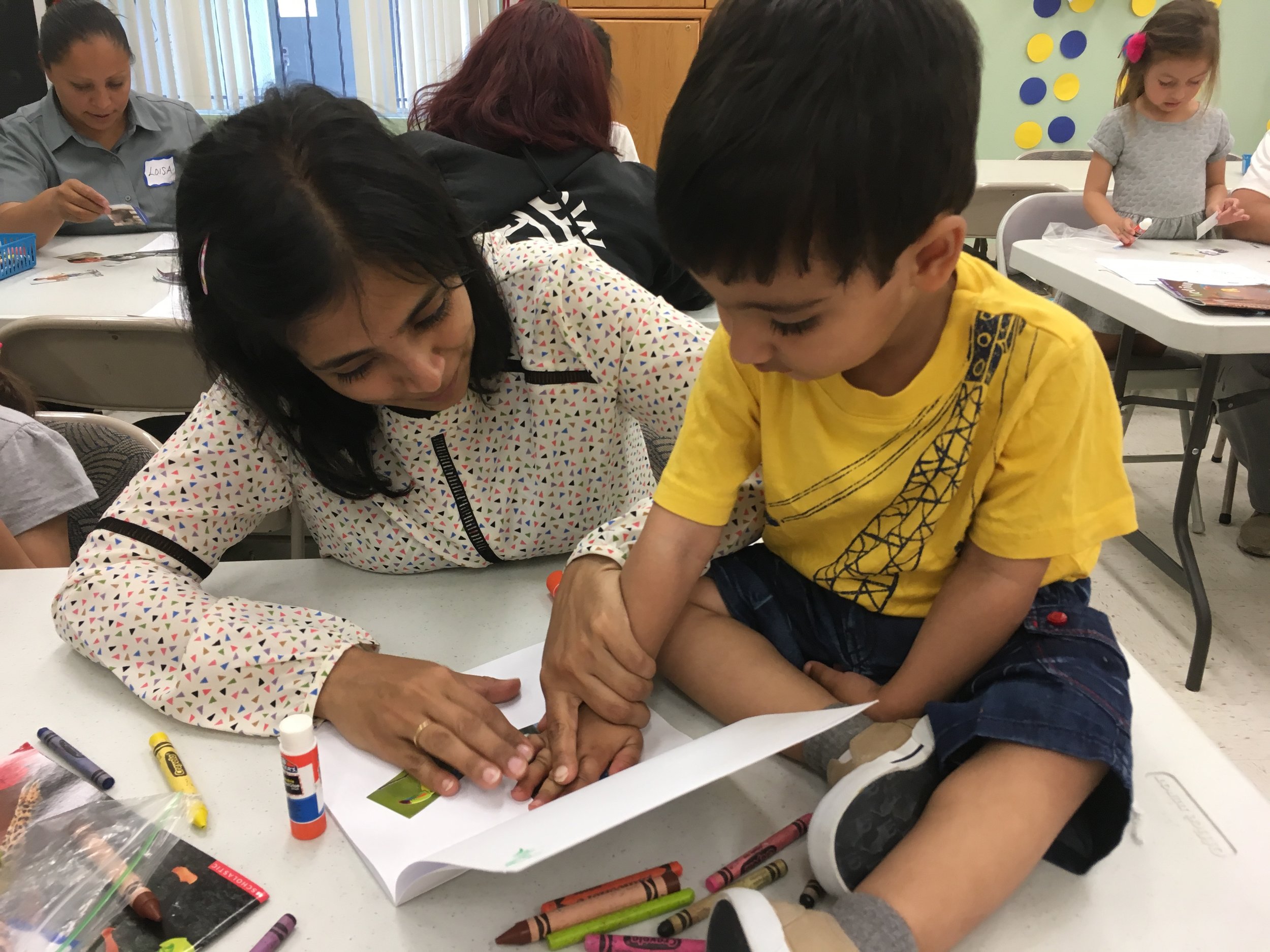By Jennifer van Pelt
What is Family Literacy?
Family Literacy is a type of literacy education that emphasizes bringing reading and writing into the home and making it a family activity. According to a study conducted by the National Center for Education Statistics, children with a “richer home literacy environment displayed higher levels of reading knowledge and skills than did their counterparts with less rich home literacy environments.” Family literacy is imperative in creating a foundation for children’s learning experiences, and it all starts with the parents.
Illiteracy in today’s children can be traced back to their parent's literacy experiences in their early lives. When parents do not feel comfortable around books, they don’t read to their children and they likely don’t have many books in the house for their children to look at or read themselves. This is why family literacy programs emphasize teaching families together and ensuring that the parents understand the importance of reading outside of a school environment. It’s not just about reading though -- in the same study by the NCES, singing songs and telling stories to children can also lead to early reading success.
What is Family Literacy?
Family Literacy is a type of literacy education that emphasizes bringing reading and writing into the home and making it a family activity. According to a study conducted by the National Center for Education Statistics, children with a “richer home literacy environment displayed higher levels of reading knowledge and skills than did their counterparts with less rich home literacy environments.” Family literacy is imperative in creating a foundation for children’s learning experiences, and it all starts with the parents.
Illiteracy in today’s children can be traced back to their parent's literacy experiences in their early lives. When parents do not feel comfortable around books, they don’t read to their children and they likely don’t have many books in the house for their children to look at or read themselves. This is why family literacy programs emphasize teaching families together and ensuring that the parents understand the importance of reading outside of a school environment. It’s not just about reading though -- in the same study by the NCES, singing songs and telling stories to children can also lead to early reading success.
A picture of a parent and child working together on an exercise in our Family Literacy Program. The child is sitting on top of the table while working, showing how we emphasize play and comfort in literacy education!
Parents: A Child’s First Teacher
As mentioned by the Urban Child Institute, a child’s brain develops at a rapid rate during their early life. By age 3, the brain has reached 80% of its adult size. Developmental experiences in these years determine the organizational and functional status of the mature brain. This is an important time in a child’s life to talk to them, look at pictures, and read books with them so they get as much exposure as they can before they begin formalized school. Parents teach their child how to navigate the world, and when parents take time to do these things, they are teaching them healthy reading habits for life.
In the earliest stages of a child’s life, the parents don’t need high literacy to teach their kids a love of books. Just asking the child to use their imagination and create a storyline for the book themselves, teaching them various sounds, and asking them questions can help develop important habits surrounding literacy. When the families make this a routine and enjoy these activities together, the building blocks of early reading success are being set up.
Another example of teaching with play! Two students learn terms like "through" by crawling through a tunnel at one of our Family Literacy sites.
Healthy Reading Habits At Home
Now that we understand the importance of family literacy, here are some ideas to help build reading and literacy components into your family’s daily life. These are based off some of the key indicators of our own Family Literacy Program:
Let your child see you reading.
Read more than books together -- read road signs, nutritional labels, etc.
Let your child pick out the books you read together.
Visit the library together.
Ask your child questions about the books or pictures.
Relate the book to your child’s life.
Sing songs and rhymes together with your child.
The Family Literacy program that Words Alive runs has demonstrated an 87% increase in the percentage of families who look at books together at home by the end of the 7 week program. This incorporation of books into the home is important when looking at future reading and literacy success. If you are curious to learn more about our Family Literacy Program and what it has to offer, the program is running right now! Head to our main website to find out more about volunteering with us or joining our Family Literacy workshops.
Sources:
https://nces.ed.gov/pubs2003/2003067_6.pdf


